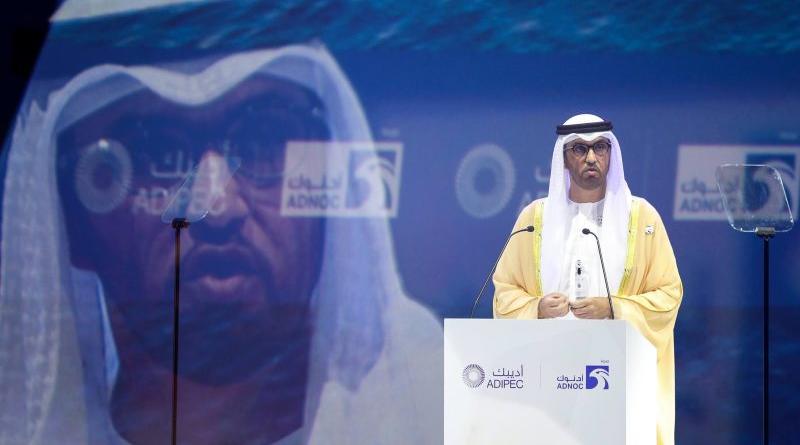Fossil fuelled: Climate talks begin with spotlight on oil chief

The future of fossil fuels – the leading source of planet-heating emissions – will face scrutiny at UN climate negotiations Monday (5 June) with an under-fire Emirati oil chief poised to step into the driver’s seat.
As the world struggles to limit warming to 1.5 degrees Celsius above preindustrial levels, pressure is on the UAE to arrive in Germany with ambitious plans for its presidency of Dubai’s December COP28 climate summit.
The choice of Sultan Al Jaber, chief executive of the Abu Dhabi National Oil Company, to head December’s COP28 summit in Dubai has angered climate activists and some Western legislators who fear it will hold back progress on reducing emissions.
Last month, more than 100 lawmakers from the US Congress and European Parliament called for the oil company boss’s removal from the position.
Al-Jaber favours the rapid development of renewable energy. But he regularly calls for more investment in hydrocarbons to meet global energy demand, emphasising the need to boost development of technologies for capturing carbon dioxide emissions.
Oil producers have for years touted carbon capture as a potential global warming solution, against criticism from climate experts who say it risks distracting from the urgent goal of slashing fossil fuel pollution.
“The presidency needs to quickly show where its ambition lies: ramping up the renewables is part of it but recognising that won’t be enough for this COP,” said Laurence Tubiana, head of the European Climate Foundation.
She added it was critical to “recognise that the fossil era is ending”.
On Sunday, the United Arab Emirates’ Foreign Minister Sheikh Abdullah bin Zayed Al-Nahyan, responsible for overseeing the preparations for COP28, met with US special presidential envoy for climate John Kerry, in a meeting attended by al-Jaber.
The three reviewed UAE-US initiatives including “The UAE-US Partnership for Accelerating Clean Energy (PACE), which will catalyse $100 billion in financing,” a statement said.
Last year’s UN climate summit in Egypt reached a landmark deal to help vulnerable countries cope with climate-enhanced disasters, but failed to toughen up commitments to tackle emissions, despite backing from more than 80 countries.
The Bonn meeting will strive to close the gap on a past-due promise of $100 billion per year to help poorer countries make their economies greener and prepare for future climate shocks.
Observers will also look for signs of how nearly 200 nations represented will respond to the first-ever “Global Stocktake”, due in September, of progress made in reducing carbon emissions.
The assessment will echo a UN report warning that the world may cross the 1.5C warming threshold within a decade. The report also said existing fossil fuel infrastructure could tip global temperatures over the edge if its carbon pollution is allowed to escape into the atmosphere.
Meanwhile, emissions – which must drop nearly 50% by 2030 to keep the Paris climate treaty goals within reach – continue to rise.
Existential threat
The 2015 Paris deal calls on countries to limit global warming “well below” two degrees Celsius, or preferably 1.5C, a safer limit that would still have severe implications for millions.
It does not say how the world will meet that challenge.
Among the most vocal advocates of slashing fossil fuel use are small island nations that could be wiped off the map within decades by rising sea levels.
“Fossil fuels are certainly the main culprit in this climate change fight,” Samuelu Laloniu, special envoy of the government of Tuvalu, told AFP in Paris.
“What is at stake for Tuvalu is the entire country.”
Tuvalu last year joined South Pacific neighbour Vanuatu in backing a Fossil Fuel Non-Proliferation Treaty.
cover photo:Sultan Ahmed Al Jaber, Minister of Industry and Advanced Technology, Managing Director & group CEO of Abu Dhabi National Oil Company (ADNOC), speaks during the opening ceremony of the Abu Dhabi International Petroleum Exhibition and Conference (ADIPEC), United Arab Emirates, 31 October 2022. [EPA-EFE/ALI HAIDER]





